Adolf Hitler's Night and Fog Directive (Nacht und Nebel Erlass): A Chilling Warning 83 Years Later
From Nazi Germany to Modern Times: How Fear, Propaganda, and Censorship Still Shape Our World
On December 7, 1941, Adolf Hitler issued the Nacht und Nebel Erlass—the Night and Fog Directive. It was a secret policy designed to eliminate resistance to Nazi rule in occupied Europe. Those targeted vanished without a trace, sent to concentration camps or executed in secrecy. Families and communities were left in torment, with no knowledge of their loved ones’ fates. This strategy of enforced disappearances was a calculated tool of state terror, aimed at instilling fear and suppressing opposition.
Key Points:
Purpose: To eliminate resistance while instilling fear and uncertainty among populations in occupied countries. By making individuals "disappear," the Nazis aimed to prevent martyrs from inspiring further resistance.
Method: Targets were arrested in secrecy, often during the night, and transported under strict secrecy to concentration camps. Families and communities were given no information about their loved ones' whereabouts or fate.
Fate of the Victims: Many were executed outright or perished in the inhumane conditions of concentration camps. The secrecy of the directive added a psychological weapon, as families never knew what had happened.
Scope: The directive was initially applied in Western Europe, particularly in countries like France, Belgium, and the Netherlands, where resistance movements were active.
Today, the tactics of fear, misinformation, and suppression continue to haunt our world, albeit in new forms. From the Middle East to Western democracies, the lessons of the Night and Fog Directive remain disturbingly relevant.
The Middle East: The Fog of Propaganda
In the ongoing conflict between Israel and Gaza, misinformation is weaponized to serve political agendas. False accusations of “occupation” and “genocide” against Israel, amplified by groups like Hamas, distort the reality of the situation, ignoring Hamas' oppressive rule in Gaza. These narratives portray Jews as “colonizers” in their ancestral homeland while presenting Arabs as the “indigenous” population, a misrepresentation that disregards Israel’s right to exist and its ongoing struggle against existential threats since 1948.
This campaign against Israel is mirrored by the United Nations, which, since 1948, has systematically targeted Israel, redefined international law to apply uniquely to the country, and created agencies like UNRWA that cater exclusively to Palestinians. The UN has demanded Israel return territories gained in defensive wars, while elevating terrorists on the world stage.
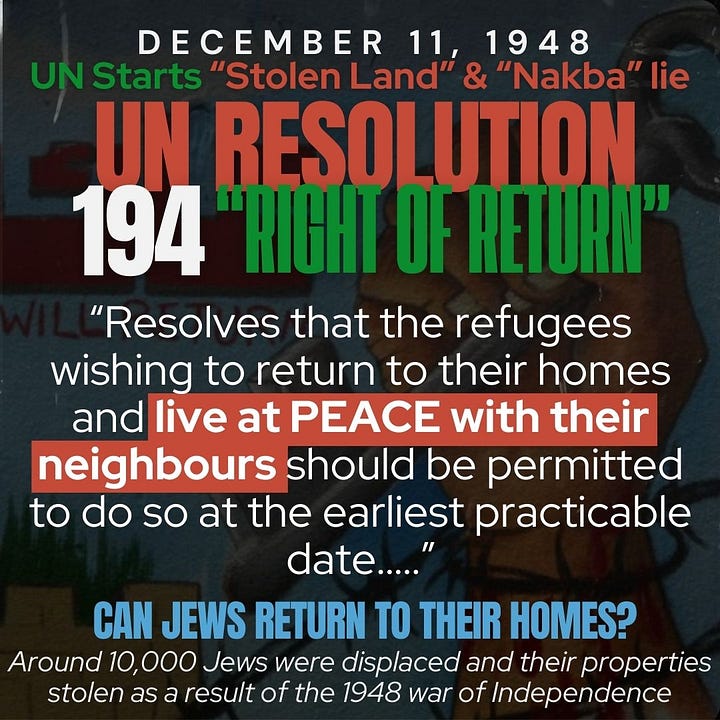

Recently, the UN’s actions reached a new low with an exhibit showcasing a one-sided narrative of the conflict against Hamas in Gaza. This exhibit included photos taken by terrorists who invaded Israel on October 7, glorifying their actions and even celebrating the taking of female hostages as "sabayas" (sex slaves). At the same time, the UN has consistently failed to condemn Arab aggression or Hamas' actions, including those from October 7.
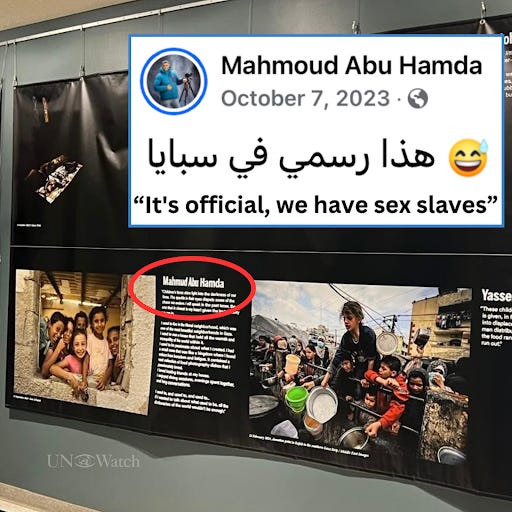
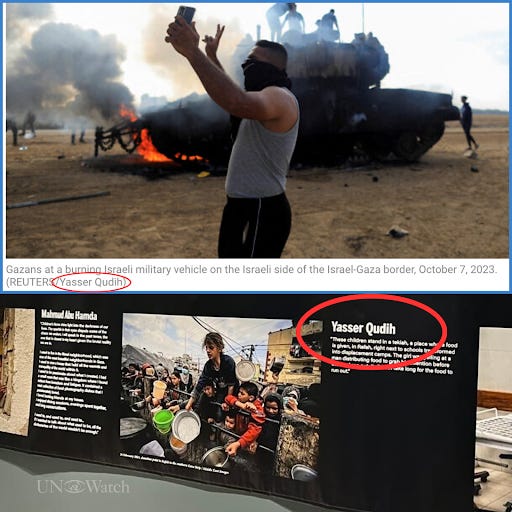
In a similar vein, Amnesty International has come under scrutiny for altering the legal definition of "genocide" in its latest report. The organization redefined genocide in a way that allowed the allegations against Israel to fit a non-existent crime. This manipulation of legal standards reflects the broader trend of distorting facts and reinterpreting international law to condemn Israel while ignoring the actions of Hamas and other terrorist groups.
Hamas' oppressive rule in Gaza is a brutal reality, exemplified by the killing of Palestinian activist Ziad Abu Hayya. Ziad, known for his criticism of Hamas, was shot in the head in front of his children while returning to his tent with food for them. His activism against Hamas' reckless actions led to his brutal kidnapping and torture by Hamas on September 7, 2024. Despite his torment, Hamas' violence against him and others continues unabated, underscoring the oppressive nature of their regime. Yet, in the global discourse, Hamas is often elevated while Israel faces unjust allegations of "occupation" and "genocide," distorting the truth of the situation in Gaza.
These distortions resemble Adolf Hitler's Nacht und Nebel Erlass (Night and Fog Directive), where fear and misinformation were used to suppress opposition and erase truth. Just as Nazi tactics sought to eliminate resistance through terror and secrecy, today’s misinformation campaigns against Israel seek to isolate the nation, suppress rational discourse, and obscure historical facts.
The West: Silencing Dissent in Free Societies
Even in Western democracies, dissenting voices are increasingly silenced. Individuals expressing counter-mainstream opinions—whether about government policies or societal norms—face growing censorship. In some cases, people are fined or jailed for social media posts that challenge the status quo.
This trend is evident in the U.K., where 3,300 people were arrested last year for what they posted on Facebook under a "Conservative" government. Now, with a radical Labour government led by a former prosecutor, the situation is worsening. Even more alarming, the U.K. police commissioner has threatened American citizens with extradition for their social media activity, expanding the reach of this censorship beyond borders.
This crackdown on free speech echoes tactics of suppression seen in darker times. While not as brutal as the Night and Fog Directive, the erosion of free expression through fear and punishment undermines democratic values and stifles meaningful debate. The result is a society where only officially sanctioned narratives thrive.
The Night and Fog Directive is not just a historical footnote; it is a warning.
The use of fear and secrecy to control populations and suppress opposition has always been a hallmark of authoritarianism. Whether in the form of propaganda in the Middle East or the silencing of dissent in Western societies, these tactics threaten to undermine the principles of truth and freedom that are essential for stability and progress.
We must remain vigilant. Recognizing and challenging these parallels in our world is the first step to ensuring that the lessons of history are not forgotten. Only by defending free speech and holding purveyors of misinformation accountable can we hope to build a society that resists the shadows of fear and thrives in the light of truth.
Subscribe for more posts on history, politics, and the lessons they teach us for the present day.

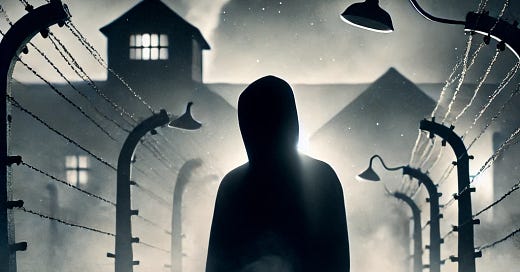


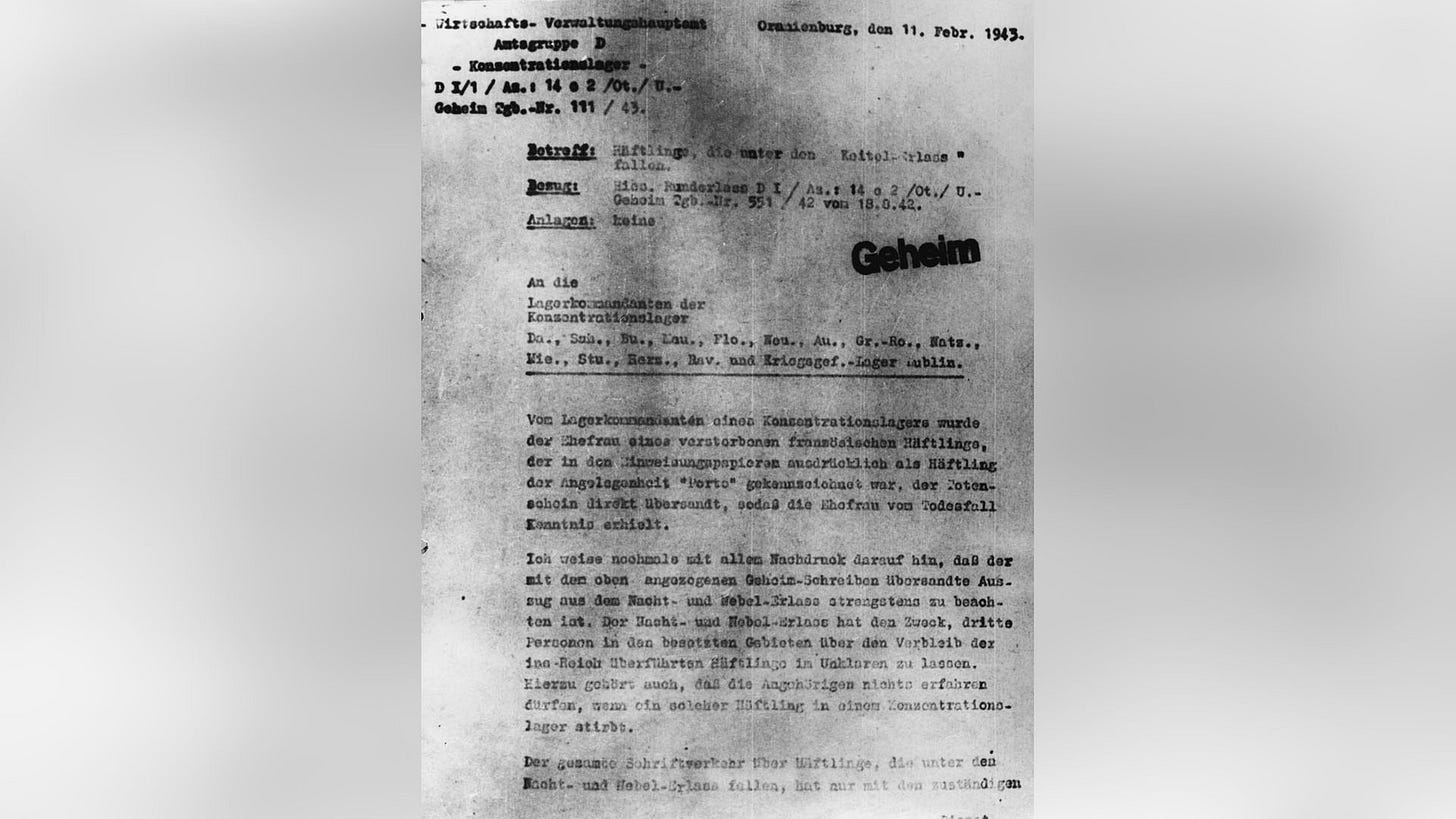
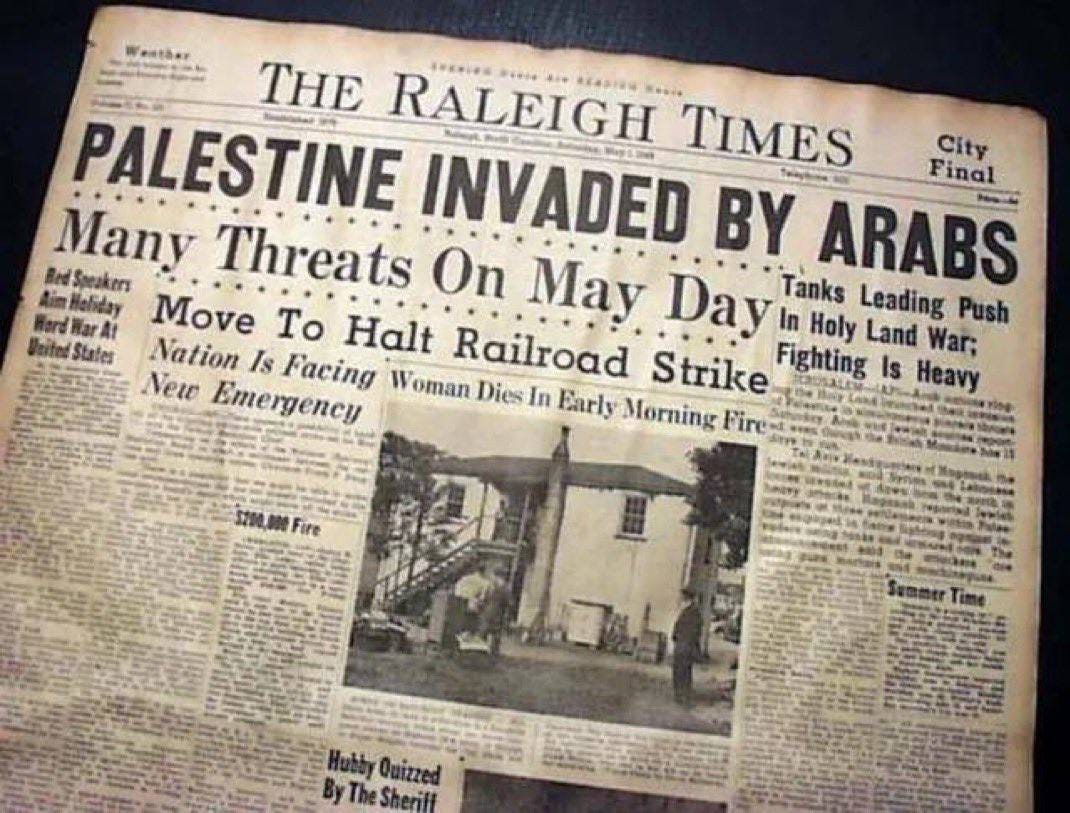
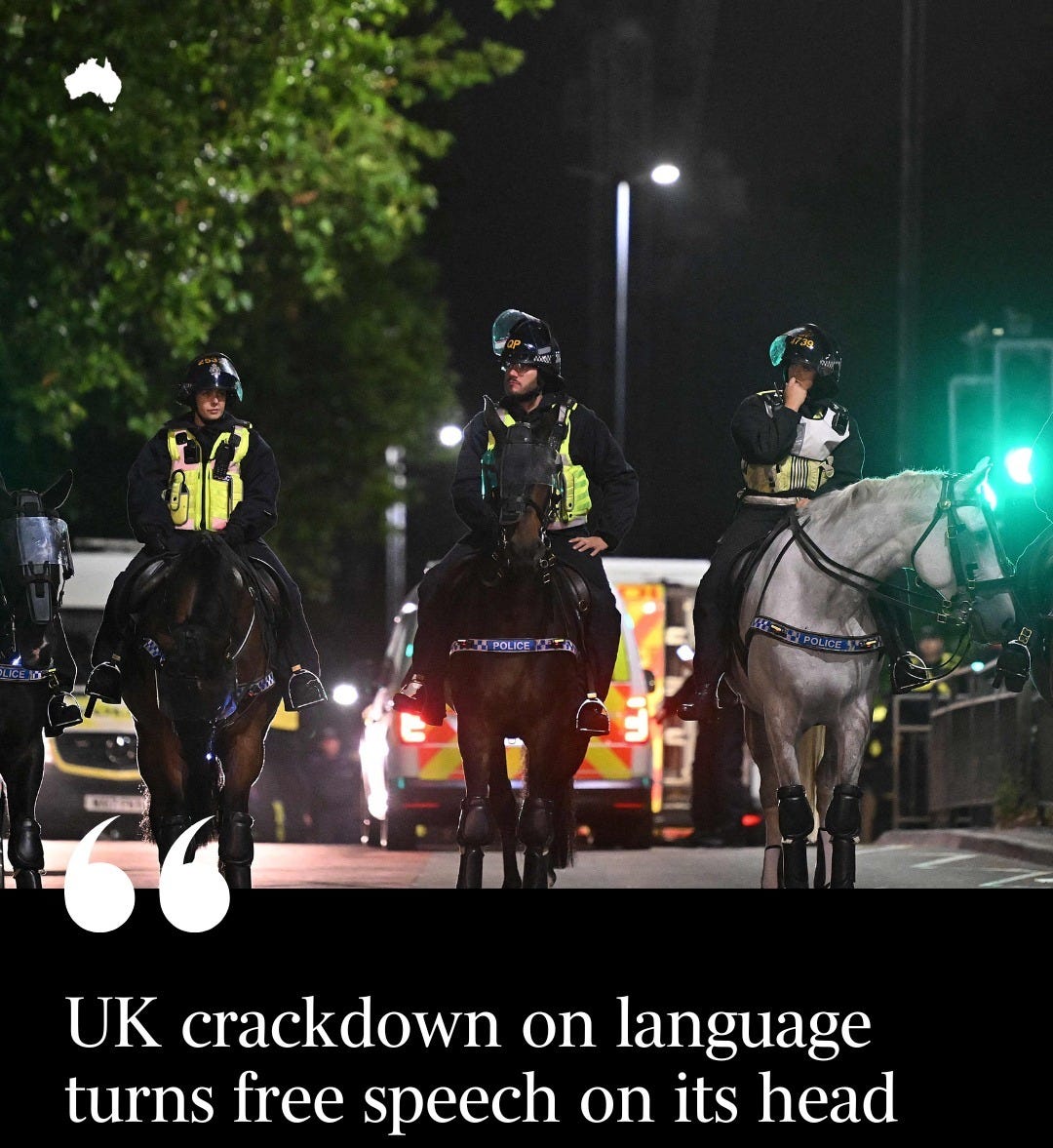
Hamas is owned and operated by the israeli intelligence apparatus. The best way...you know the rest...
"The point of modern propaganda isn't only to misinform or push an agenda. It is to exhaust your critical thinking, to annihilate truth."
Garry Kasparov